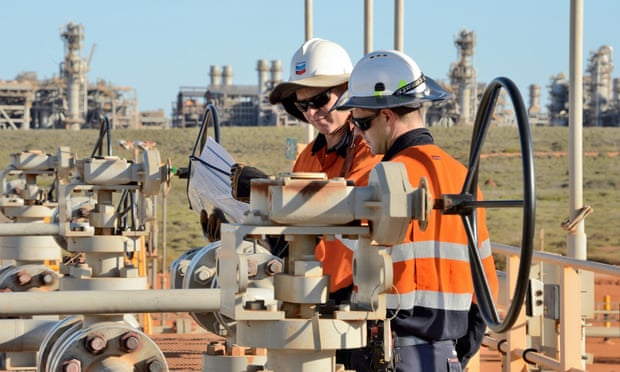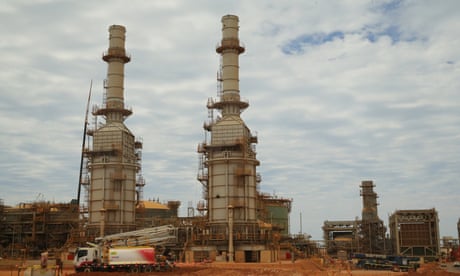Extract from The Guardian
Carbon capture and storage (CCS)
While scale of shortfall is uncertain, conservationists claim admission is proof the project isn’t working.

Sat 16 Jul 2022 06.00 AEST
Last modified on Sat 16 Jul 2022 06.36 AESTThe company also confirmed on Friday it had bought and surrendered 5.23m tonnes of CO2 offsets to make up for the failure to meet its 2021 target at its CCS project at the offshore Gorgon gasfield in Western Australia.
Almost all of those carbon offsets related to overseas projects to reduce emissions, with only 200,000 tonnes bought from Australia’s domestic market.
The WA government has given Chevron a target to capture at least 80% of the CO2 from the gas produced at Gorgon and then inject it into a geological formation two kilometres below Barrow Island, off the state’s north-west coast.
Conservationists and an energy analyst said the company’s latest admission was further proof that the Gorgon project “wasn’t working”.”
The $3bn Gorgon project is the only operating carbon capture facility in Australia and is one of the world’s largest.
The state government-set target for Gorgon to capture and store 80% of the CO2 from the gas is calculated on a five-year rolling average and in July last year Chevron said it had fallen 5.23Mt short.
Chevron was liable for capturing CO2 at its plant from July 2016, but technical problems meant injection didn’t start until August 2019. Between that late start date and July 2021, 5.5Mt of CO2 was stored.
This would be disclosed later in the year, the company said, but the shortfall related to delays in getting the project up and running.
Chevron owns 47% of the Gorgon LNG project with partners ExxonMobil (25%) and Shell (25%).
Maggie Wood, executive director of the Conservation Council of WA, said Chevron had “inadvertently become the poster child for all that is wrong with carbon capture and storage”.
“CCS simply does not work,” Wood said.
Wood said a fundamental problem with offsets was that they “don’t stop carbon emissions from entering the atmosphere and having severe impacts on the climate”.
Chevron’s CCS plant extracts CO2 from the gas after it has been drilled. But the vast majority of emissions come once the gas is burned overseas.
Bruce Robertson, a gas industry finance analyst at the thinktank Institute for Energy Economics and Financial Analysis, said: “The bottom line here is that the Gorgon CCS plant was enormously expensive and it doesn’t work.”
“If you’re only capturing about 50% of the CO2, that means you’re letting the rest of it go [into the atmosphere]. We’re supposed to be reducing emissions but these projects are emissions-intensive. We have our foot to the floor when we should be trying to produce less- and lower-emitting gas.”
The Guardian asked Chevron how much it had paid for the 5.23Mt.
“For commercial reasons we are not disclosing the cost or specific transaction details of the carbon credits acquired and surrendered,” a spokesperson said.
Surrendering an offset means the buyer pays for carbon credits that relate to projects that save emissions but then cancels, or “surrenders”, them instead of holding them as an asset or selling them.
According to data from the Clean Energy Regulator, between the 12 January and 2 July, Chevron surrendered 202,570 Australian carbon credit units (ACCU) – with each unit equaling one tonne of CO2 from a domestic project.
The company confirmed these related to its shortfall at Gorgon, with the rest falling under two categories of carbon offsets bought from overseas markets.
A Chevron spokesperson said: “While we sought to maximise the amount of ACCUs, the market is relatively small and has seen unprecedented levels of trading and volatility in the last six to 12 months, making it challenging to acquire significant volumes without distorting the market further.”
Hugh Grossman, executive director at carbon market analyst Reputex, said the previous government’s decision to allow Australian carbon offset projects to break government contracts had seen prices for ACCUs fall.
This effectively added supply to the market, which would make it easier for any carbon offset buyer – including Chevron – to buy Australian offsets in the future.
Prices for ACCUs in the first six months of 2022 averaged $39 per tonne, Grossman said.

No comments:
Post a Comment